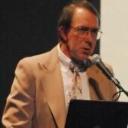Yahoo Answers is shutting down on May 4th, 2021 (Eastern Time) and beginning April 20th, 2021 (Eastern Time) the Yahoo Answers website will be in read-only mode. There will be no changes to other Yahoo properties or services, or your Yahoo account. You can find more information about the Yahoo Answers shutdown and how to download your data on this help page.
Trending News
how does the big bang theory account for the formation of the universe?
3 Answers
- godlessLv 79 years agoFavorite Answer
It used to be that science couldn't answer the question about the origin of the universe or of the Big Bang, but that didn't mean we should make up an answer (such as a god) and say that it was the cause. Within the last few decades scientists have discovered some good answers. Of course, a scientific explanation is more complex than simply saying, "God did it."
Quantum mechanics shows that "nothing," as a philosophical concept, does not exist. There is always a quantum field with random fluctuations.
There are many well-respected physicists, such as Stephen Hawking, Lawrence Krauss, Sean M. Carroll, Victor Stenger, Michio Kaku, Alan Guth, Alex Vilenkin, Robert A.J. Matthews, and Nobel laureate Frank Wilczek, who have created scientific models where the Big Bang and thus the entire universe could arise from nothing but a quantum vacuum fluctuation in the quantum field -- via natural processes.
In relativity, gravity is negative energy, and matter and photons are positive energy. Because negative and positive energy seem to be equal in absolute total value, our observable universe appears balanced to the sum of zero. Our universe could thus have come into existence without violating conservation of mass and energy — with the matter of the universe condensing out of the positive energy as the universe cooled, and gravity created from the negative energy. When energy condenses into matter, equal parts of matter and antimatter are created — which annihilate each other to form energy. However there is a slight imbalance to the process, which results in matter dominating over antimatter.
I know that this doesn't make sense in our Newtonian experience, but it does in the realm of quantum mechanics and relativity. As Nobel laureate physicist Richard Feynman wrote, "The theory of quantum electrodynamics describes nature as absurd from the point of view of common sense. And it agrees fully with experiment. So I hope you can accept nature as she is — absurd."
For more, watch the video at the 1st link - "A Universe From Nothing" by theoretical physicist Lawrence Krauss, read an interview with him (at the 2nd link), get his new book (at the 3rd link), or read an excerpt from his book (at the 4th link).
-
Source(s): http://tinyurl.com/y8j6tpa http://www.samharris.org/blog/item/everything-and-... http://www.amazon.com/Universe-Nothing-There-Somet... http://www.scientificamerican.com/article.cfm?id=u... http://www.godlessgeeks.com/WhyAtheism.htm#bigbang http://www.stellarhousepublishing.com/originsofchr... http://freethoughtblogs.com/wwjtd/2012/01/19/will-... http://www.atheismresource.com/2010/jesus-never-ex... http://www.godlessgeeks.com/JesusExist.htm - MorningfoxLv 79 years ago
It doesn't. The same way that my book, "How to build a car from iron ore" doesn't account for how the iron ore got there.
There are ideas on how the universe came to be. They just aren't part of the Big Bang Theory. The BBT is not a theory of everything that people might wonder about. It is not a theory of how planets are formed, or the merits of Social Democracy, how to play basketball, or why mome raths outgrabe. And it is certainly not a theory of the formation of the universe.
- choko_canyonLv 79 years ago
Entirely. If you read even the smallest amount about it, you would understand.





